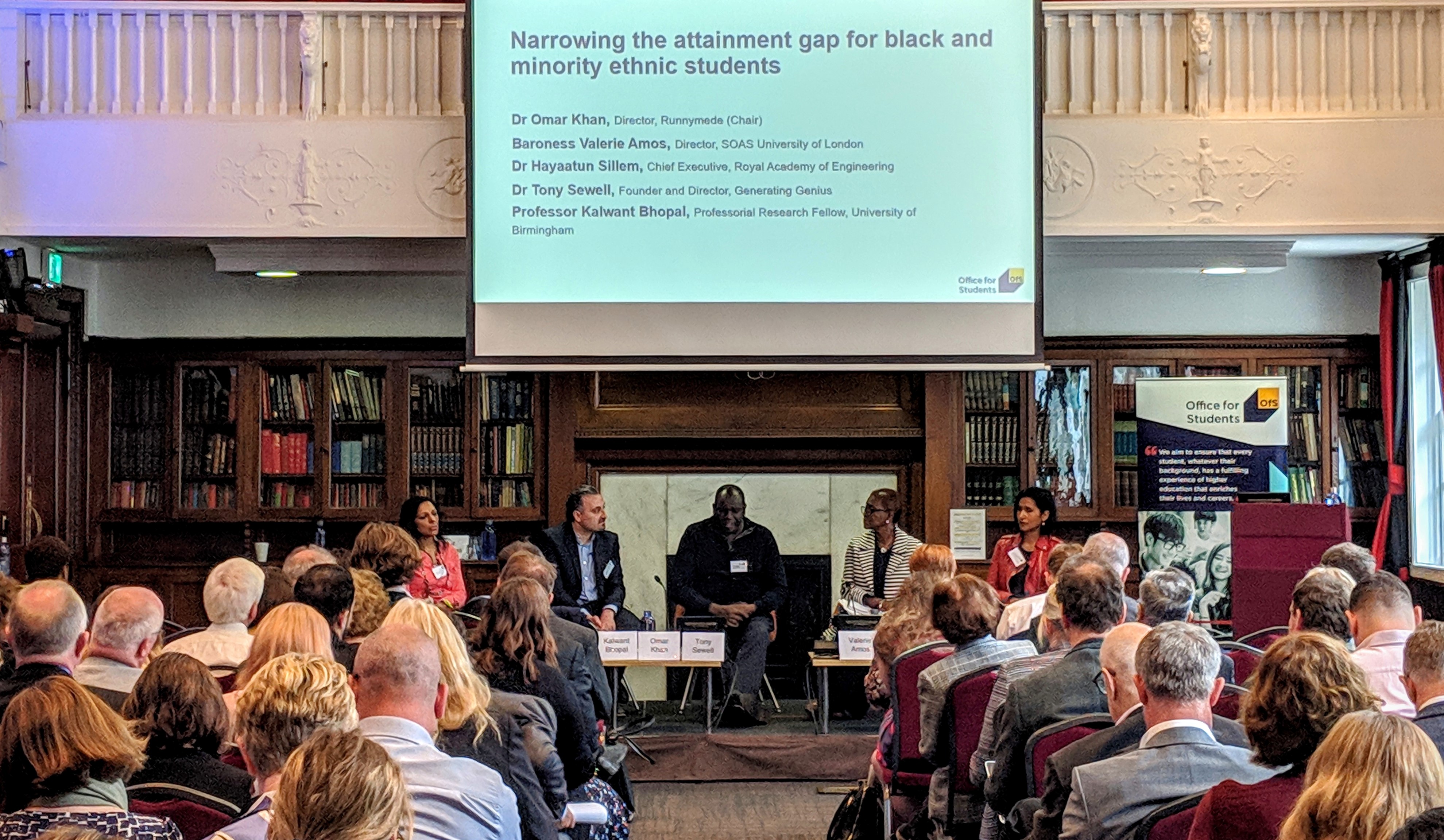The OfS's inaugural Insight event focused on access and participation, with experts drawn from a range of backgrounds sharing their expertise. OfS Director for Fair Access and Participation Chris Millward reflects on the day.

"Talent is everywhere, but opportunity most certainly is not.”
Of the many insights shared by our guest speakers on Wednesday, these words of Dr Kedra Ishop – Vice-Provost for Enrollment Management at the University of Michigan – stuck with me. Her words encapsulate so many of the major issues the Office for Students was set up to address.
Our objectives are unashamedly ambitious. We’re aiming for equality of opportunity for all students. This means that students from all backgrounds are able not just to enter higher education but to thrive when they get there.
What was so encouraging about our first Insight event was the sense that this ambition is shared by so many others across the sector.
Much attention is given to the regulatory pressure the OfS exerts on individual universities and other higher education providers through access and participation plans. But that is only half the story. Our role is also to support providers – for example through the sharing of effective practice. That is why I’m delighted that our 'What Works’ Centre for Transforming Access and Student Outcomes is now up and running, which will use evidence and evaluation to show how higher education contributes to social mobility and social justice.
If we are going to make progress, we need to support each other and work together. What are the biggest challenges? What is causing them? What we can do about them? What approaches are successful?
That is what our Insight events are all about: asking the hard questions and sharing how different people are trying to answer them: here and overseas, in different types of higher education provider and for different groups of students. There is so much we can learn from each other.
In the first panel discussion we heard about how other countries are using contextual information to drive fairer admissions, and how radical change can be achieved in England if we adopt similar approaches.
We know that there is a stronger link between social background and school attainment in this country than others, and yet less consideration is given to social background in the judgement of students’ potential through the admissions system. We won’t achieve fair access unless we consider factors other than exam results to decide who gets into higher education and focus truly on potential when we judge merit.
However, getting students into university is only part of the challenge.
Black and minority ethnic students face multiple barriers after entering higher education. Black students in particular face the starkest disparities in attainment compared to their peers, and this continues into the labour market. As our second panel stressed, and this week’s UUK/NUS report makes clear, there is a need for staff and students to have straight conversations about the causes of these gaps and what should be done about them, and then clear and measurable action led from the top.
In our third session we heard that more people are choosing to study and work in the regions where they grew up, yet they continue to be treated as unusual. The needs of local and commuter students, who often come from the most disadvantaged communities, should be embedded in all of our work. As this week’s Social Mobility Commission report has argued, you should not need to leave your home town in order to succeed.
Of course, there are many more challenges that we could have identified. We could have talked about student mental health and wellbeing; lifelong learning and mature student participation; or the barriers faced by particular groups like care leavers. The Office for Students is active on all those issues and we welcome suggestions of new areas where we could be driving good practice across the sector.
For our part, we will continue to require every higher education provider to conduct an honest and rigorous self-assessment to identify gaps in equality and opportunity, set ambitious goals to address them, and robust plans to deliver on it.
As we do this, we will be sensitive to the specific context and location in which every provider is working, and the individuality of each student. Geographical measures work well for targeting outreach and monitoring performance in most places by identifying communities that are persistently underrepresented in higher education. But, as we heard at the event, we know also that they must be aligned with individual indicators for decisions such as admissions, which affect particular students. And where quite different populations live close together, we know that different approaches may be needed. That’s why we are developing more intersectional and individualised indicators, working with the government and UCAS, and we provide flexibility within our guidance.
In many ways, this week’s Insight event embodied the collective ambition needed to transform access and participation across England’s higher education sector. It brought together evidence and perspectives of many different kinds – from different parts of the UK and overseas to address complex problems.
Much of the evidence and experience we heard came from universities, and they deserve great credit for the way in which they are gathering and sharing this for the benefit of their students and the communities in which they’re based. But we must also acknowledge that universities will reflect and indeed compound inequalities in wider society, unless they take positive action.
For all students, but particularly the most underrepresented, there is much more that we can do.

Comments
Report this comment
Are you sure you wish to report this comment?